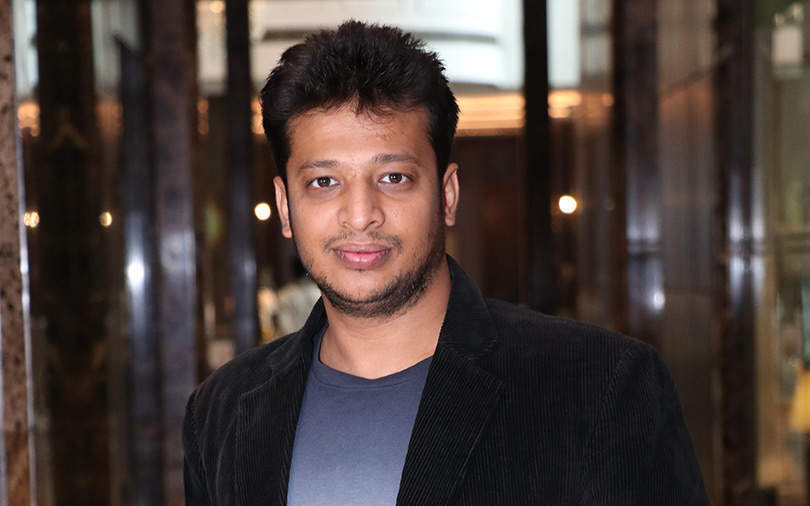
FarEye’s Kushal Nahata on building a global SaaS logistics platform from India


When Kushal Nahata, Gautam Kumar and Gaurav Srivastava plunged into entrepreneurship straight out of engineering college, a Software-as-a-Service (SaaS) platform for the logistics sector wasn’t even on the radar. Rather, RoboticWares Pvt. Ltd, the startup they founded, dabbled in stuff such as a sensor-based automation system for assisting the differently-abled and a Global Positioning System (GPS)-tracking system to enable car owners to track their vehicles in real time.
“While developing those solutions, we stumbled upon our first logistics client, fashion etailer Jabong, and realised that the logistics sector was riddled with challenges that could be solved using technology,” says Nahata, in a conversation with TechCircle. Jabong signed up with the startup to automate product delivery for its logistics arm GoJavas and FarEye, RoboticWares’ logistics management platform, was born.
At the time, the domestic e-commerce sector was just gaining momentum and while the online shopping experience was seamless, delivery of those products was a big problem. “Consumers had scarce information about the whereabouts of the consignment, leading to confusion and inconvenience,” says Nahata. They went on to develop a solution that helped GoJavas automate the entire process so that delivery personnel and packages were traceable in real time.

“The (logistics management) solution became an instant hit with everyone involved in the process from delivery personnel to logistics vendors to e-commerce companies and, of course, the end customer,” recalls Nahata.
Today, the FarEye platform is used not just by e-commerce players but across sectors by companies such as logistics giants DHL International Gmbh and Blue Dart Express Ltd, retail giant Walmart Inc., industrial tools maker Hilti Corporation, Future Enterprises-owned Future Supply Chain and marketing firm Amway Corp. “Starting with Jabong, as we grew and started interacting with more prospects from various industries, we realised that the scope of increasing efficiency in logistics processes is not limited to the e-commerce sector,” he says.
FarEye currently offers solutions along three specific platforms -- FarEye Delivery, FarEye Fulfilment and FarEye Transportation.

FarEye Delivery is a flexible workflow-based platform for logistics providers and fleet owners to deliver better customer experience at greater operational efficiency. The large fleet-owning companies are able to improve profitability, on-time deliveries and visibility. FarEye Fulfilment is a real-time order fulfilment and visibility platform for retailers and shippers to increase perfect order index and offer faster delivery to end customers. It helps companies deliver an Amazon-standard customer experience, says Nahata. Finally, FarEye Transportation is an Internet of Things (IoT)-enabled predictive visibility platform for manufacturers to run logistics operations to achieve on-time delivery and efficiency. It enables predictability in freight movement, allows data-driven transporter allocation and digital proof of delivery.
The streamlining of offerings along the three platforms was partly driven by the acquisition of IoT-powered freight logistics marketplace Dipper for an undisclosed sum in November last year. The acquisition, says Nahata, reinforced FarEye’s plans to solve challenges in not just the last-mile space but for the long-haul and multi-modal logistics.
The company is now working more aggressively with emerging technologies such as artificial intelligence, machine learning, IoT and analytics to provide predictive visibility and operational intelligence to achieve on-time deliveries at a reduced cost, and is building its own geo-coding and predictability engine.

Along the way, the startup has managed to draw interest from marquee investors. In June 2016, about three years after they launched FarEye, Nahata and his co-founders snagged a $3.5 million Series A round from Gurugram-based venture capital firm SAIF Partners. Last February, it raised a $9.5 million round from Deutsche Post DHL Group. “Alok Goel (at SAIF Partners) has been a big influence. His experience in the SaaS (Software-as-a-Service) sector and building technology products has guided us to enhance our platform significantly,” Nahata says about the company’s experience working with the venture capital firm.
With offices around the globe including California, London, Dubai, Singapore and India, FarEye claims to be one of the top three global platforms in the business and generates more than 75% of its revenue from outside India. “India, however, continues to be our home ground and, with our transportation product, we plan to grow aggressively in this market,” he said. It plans to add 100 people to its 288-strong workforce during the current financial year of 2019-20 as part of its expansion plans.
As one of the few SaaS platforms from India that have successfully gone global, Nahata sees big opportunities ahead for the sector. “There are a lot of successful predecessors to look up to. Setting up a SaaS business based out of India that sells to the world is not a black box anymore,” he signs off.

